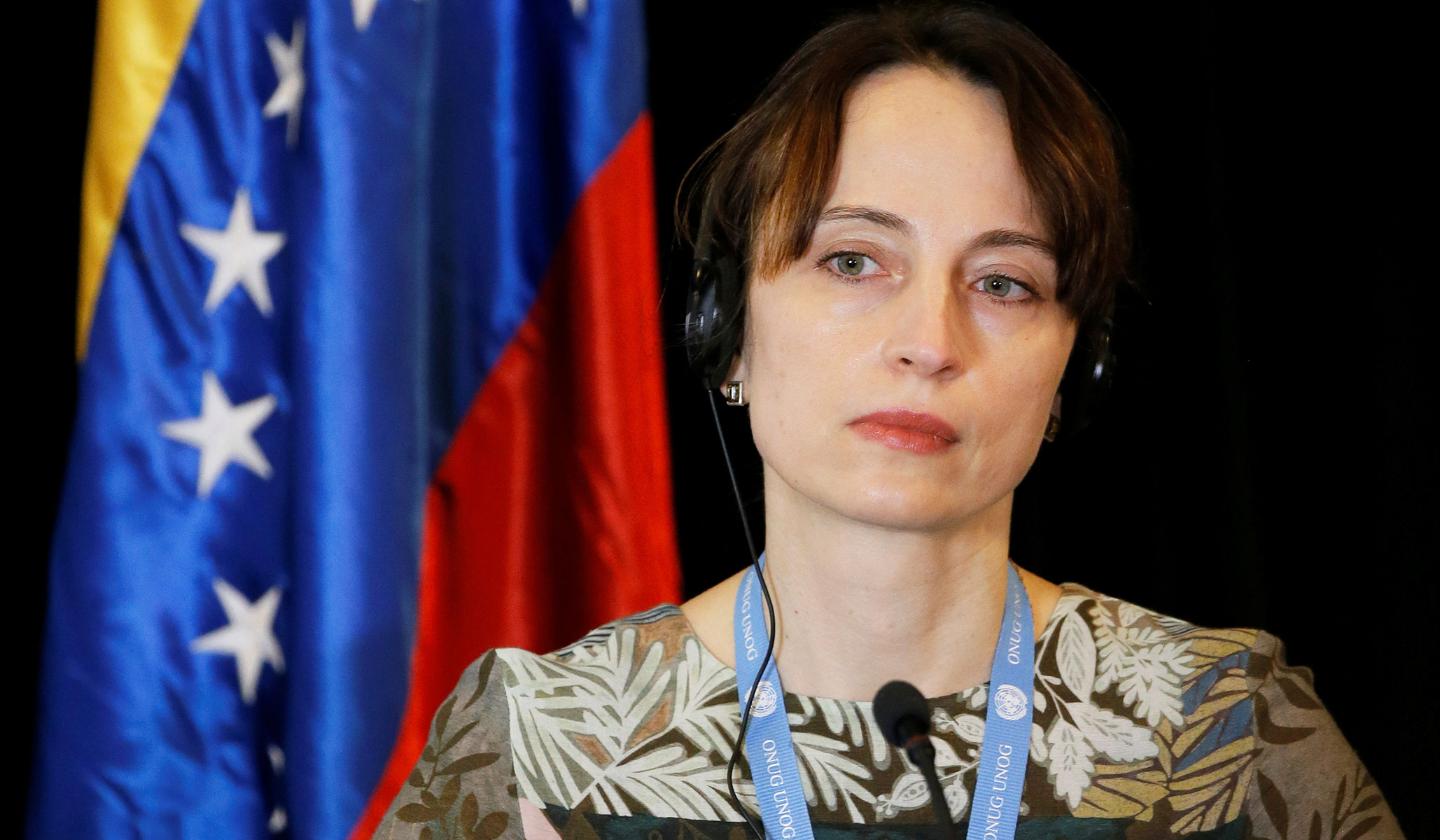


The U.N.’s official communications department amplified an attack on U.S. sanctions policy by a U.N. human-rights rapporteur who receives funding from China and Russia, as U.S. concerns about Chinese influence at the U.N. grow.
This afternoon, the Twitter account of the U.N. News Service posted a statement by U.N. special rapporteur Alena Douhan condemning U.S. sanctions as violating human rights. “This is a clear violation of due process rights, including the presumption of innocence and fair trial,” she wrote in the statement shared by the account.
Douhan is a Belarusian academic who works for a state-run university in the country. In 2020, Douhan was appointed to the role of special rapporteur on unilateral coercive measures — a title borrowing the language of authoritarian regimes that object to the use of sanctions that limit their activities. Throughout her tenure, Douhan has paid visits to Qatar, Syria, and Venezuela, urging foreign governments to lift sanctions on each of the countries.
Her position, which focuses on undermining the legal justification for Western sanctions, was created in 2015 through a resolution pushed by Iran and other authoritarian regimes. China and Russia earmarked funding for her office within the U.N. human-rights architecture in 2021, with China allocating $200,000 for her work and Russia contributing $150,000. Most special-rapporteur offices receive a nominal amount of funding from the U.N.’s human-rights office, in addition to earmarked funds.
While she describes her mission as combating sanctions regimes that violate human rights, in practice she has called for the lifting of sanctions imposed on foreign actors involved in egregious human-rights atrocities.
Although U.N. human-rights experts are granted a significant amount of autonomy and operate separately from the U.N. secretariat, it’s noteworthy that the U.N. News Service account boosted her anti–America sanctions broadside. That account is run by the U.N. secretariat’s global communications department.
There’s already widespread concern in Washington that the international body has been overrun by Beijing’s agenda. Most recently, during a Senate Foreign Relations Committee hearing last month, deputy secretary of state Wendy Sherman warned that the Chinese government has “penetrated the U.N. system” and said that the U.S. ambassador to the U.N., Linda Thomas-Greenfield, is working on efforts to counter Beijing’s subversion of the organization.
Last year, National Review reported that the U.N. secretary-general rebuffed an effort by Taiwan’s allies to end the country’s exclusion from the U.N., while employing language that echoed the Chinese government’s approach.
The U.N.-backed broadside against U.S. sanctions policy today coincided with the release of the White House’s budget request for the next fiscal year. The international-affairs portion of the request seeks $1.7 billion for funding to international organizations, a sum that includes over $700 million for the U.N.’s main budget. If enacted, that would be a slight boost over last year’s approved budget.
But the work by the official U.N. communications department to promote anti-U.S. narratives by an official funded by the Chinese government could make members of Congress more reluctant to allocate funding to the U.N.
